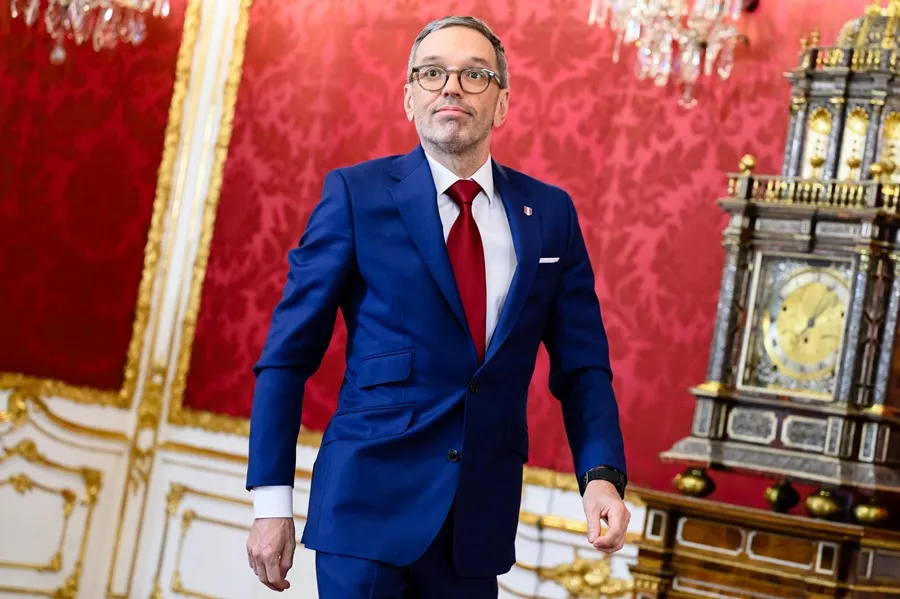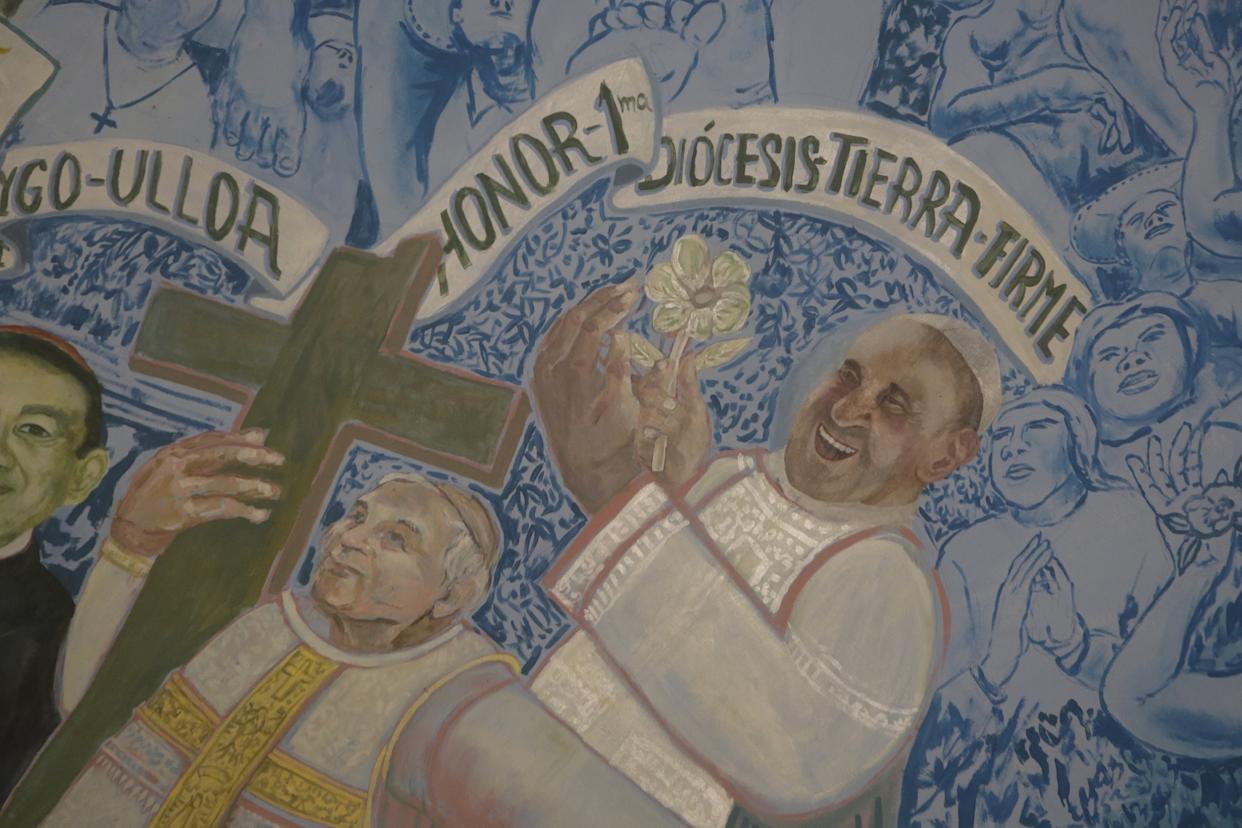International
The federal president of Austria commissions the far-right Herbert Kickl to form a government

The federal president of Austria, Alexander Van der Bellen, commissioned on Monday the far-right Herbert Kickl, leader of the liberal party FPÖ, to form a new government after the collapse of negotiations between conservatives, social democrats and liberals.
After meeting this morning for an hour with Kickl, the head of state said that he has instructed him to negotiate with the popular party ÖVP on the formation of a government coalition.
“Mr. Kickl has the necessary confidence to find viable solutions within the framework of government negotiations, and he wants to assume this responsibility, so I commissioned him to enter into talks with the ÖVP on the formation of a federal government,” Van der Bellen said.
“I have not taken this step lightly, I will continue to ensure the correct compliance and observance of the principles and rules of our Constitution,” added the president, who in the past had been against a government led by Kickl.
It is the first time in the history of Austria that the far-right FPÖ, winner of the elections of last September 29 with about 29% of the votes, is commissioned to form a government.
“The ÖVP has reversed its categorical rejection of cooperation with Kickl. That’s the new situation,” Van der Bellen said about the change of position announced on Sunday by the new conservative leader, Christian Stocker.
He succeeded yesterday the hitherto federal foreign minister and conservative leader, Karl Nehammer, who had announced his resignation on Saturday after failing the negotiations for a tripartite government between the ÖVP and the social democratic party SPÖ and the liberal Neos.
Nehammer was against a coalition with the FPÖ under Kickl, which he accuses of being a danger to the country’s security for his xenophobic, pro-Russian and critical positions of the European Union (EU).
Who is Kickl?
Kickl is a former Minister of the Interior (2017-2019) in a government led by former conservative foreign minister Sebastian Kurz.
In June 2021, he assumed, in the midst of the coronavirus pandemic, the presidency of the FPÖ and radicalized the tone and discourse of the party.
He not only rejects the measures taken by the then conservative-ecologist government against the coronavirus, but also Western support for Ukraine and sanctions against Russia, the cooperation of neutral Austria with NATO, and is critical of the EU.
One of Kickl’s main allies is the Hungarian Prime Minister, the ultra-nationalist Viktor Orbán, with whom he formed the “Patriots for Europe” faction, the third group of the European Parliament.
In addition, the FPÖ maintains close relations with Alternative for Germany (AfD), in which there are elements who are being investigated by the German justice as right-wing extremists.
The FPÖ is a party founded after World War II by former Nazi hierarchs and to this day brings together the most extremist and right-wing circles in the country.
International
DHS Secretary Kristi Noem’s Purse Stolen in D.C. Restaurant Heist

The purse of Kristi Noem, Secretary of the Department of Homeland Security, was stolen on Sunday night at a restaurant in Washington, D.C., Fox News Digital confirmed through several agency sources.
The handbag, taken by a white male wearing a mask, reportedly contained $3,000 in cash along with personal documents, including her passport, keys, driver’s license, and DHS badge, according to an agency spokesperson.
“Her entire family was in town, including her children and grandchildren. She was celebrating her retirement by treating them to dinner, activities, and Easter gifts,” the spokesperson added.
Crime continues to be a significant issue in the U.S. capital, particularly theft. However, violent crime reached its lowest level in 30 years last year, according to the Office of the Attorney General at the time.
International
Pope Francis: The Quiet Architect Behind the U.S.-Cuba Thaw

When then-U.S. President Barack Obama and Cuban President Raúl Castro announced the reestablishment of diplomatic relations in December 2014—after decades of hostility—there was a third figure present in both speeches: Pope Francis.
This thaw in U.S.-Cuba relations—later reversed by Donald Trump—was the result of behind-the-scenes negotiations personally encouraged by Pope Francis, who passed away on Monday at the age of 88, just over a year after becoming head of the Catholic Church.
Upon learning the news of the breakthrough, the pontiff humbly stated, “This was made possible thanks to the ambassadors and to diplomacy,” which he called “a noble, very noble job.”
In 2015, months after the announcement, Raúl Castro visited the Vatican and met with the pope. Over time, Castro developed a fondness for Francis that he never had for his predecessors, Benedict XVI and John Paul II. “If the Pope continues talking like this, sooner or later I’ll start praying again and return to the Catholic Church—and I’m not joking,” said the younger Castro, who, like his brother Fidel (1926–2016), had been educated by Jesuits—the same order to which Pope Francis belonged.
Pope Francis visited Cuba later that year. Just days before his arrival, the Cuban government announced the pardon of 3,522 common prisoners as an act of clemency.
While in Havana, the pope met with Fidel Castro, who gave him a first edition of the book Fidel and Religion by Brazilian friar and liberation theologian Frei Betto.
Criticism from the Opposition
Francis’s diplomatic approach also drew criticism from parts of the Cuban opposition. In a 2022 interview with Univision, the pope revealed he had “a human relationship” with Raúl Castro.
International
Dominican Republic Declares Three Days of Mourning for Pope Francis

Dominican Republic President Luis Abinader has declared three days of national mourning starting Tuesday following the death of Pope Francis, who passed away on Monday at the age of 88 in his residence at the Casa Santa Marta.
In an official decree, Abinader highlighted the pope’s legacy “as a global leader who promoted significant reforms within the Catholic Church and was known for his humility, openness to dialogue, and commitment to peace among nations.”
During the mourning period, the national flag will be flown at half-staff at military facilities and public buildings.
According to a statement from the Office of the Presidency, although Pope Francis never visited the Dominican Republic during his papacy, he maintained a close relationship with the country. He expressed solidarity and empathy during difficult times, including offering prayers for the victims of the recent tragedy at a Santo Domingo nightclub on April 8, which claimed 232 lives and left more than 180 injured.
-

 Central America4 days ago
Central America4 days agoNicaraguan Exiles to Mark 7th Anniversary of 2018 Protests with Global Commemorations
-

 International4 days ago
International4 days agoDominican ‘False Hero’ Arrested for Faking Role in Nightclub Collapse That Killed 231
-

 International3 days ago
International3 days agoACLU seeks emergency court order to stop venezuelan deportations under Wartime Law
-

 Central America3 days ago
Central America3 days agoUN complaint filed against Costa Rica over detention of migrant children
-

 International2 days ago
International2 days agoThousands rally nationwide against Trump’s threat to U.S. democracy
-

 Central America1 day ago
Central America1 day agoSenator Van Hollen Meets with Deported MS-13 Member in El Salvador; Trump and Bukele React
-

 International1 day ago
International1 day agoPope Francis Appears for Easter Blessing, Calls for Peace and Religious Freedom
-

 Central America3 hours ago
Central America3 hours agoCardinal Rodríguez to Attend Funeral of Pope Francis: “He Was Very Dear to Me”
-

 International3 hours ago
International3 hours agoDominican Republic Declares Three Days of Mourning for Pope Francis
-

 Central America3 hours ago
Central America3 hours agoNicaragua’s Ortega and Murillo Mourn Pope Francis, Acknowledge ‘Difficult’ Relationship
-

 International3 hours ago
International3 hours agoDHS Secretary Kristi Noem’s Purse Stolen in D.C. Restaurant Heist
-

 International3 hours ago
International3 hours agoPope Francis: The Quiet Architect Behind the U.S.-Cuba Thaw















